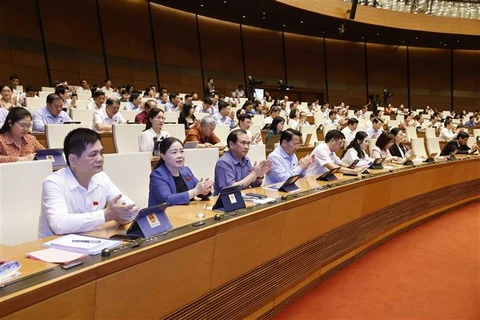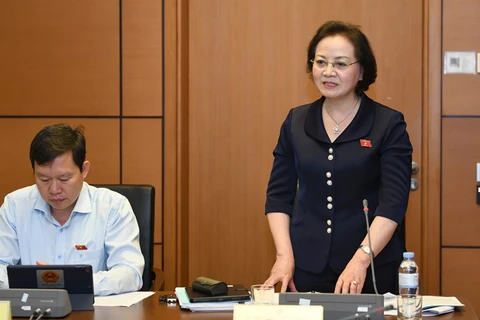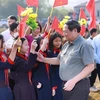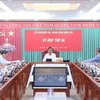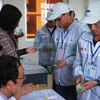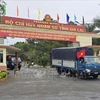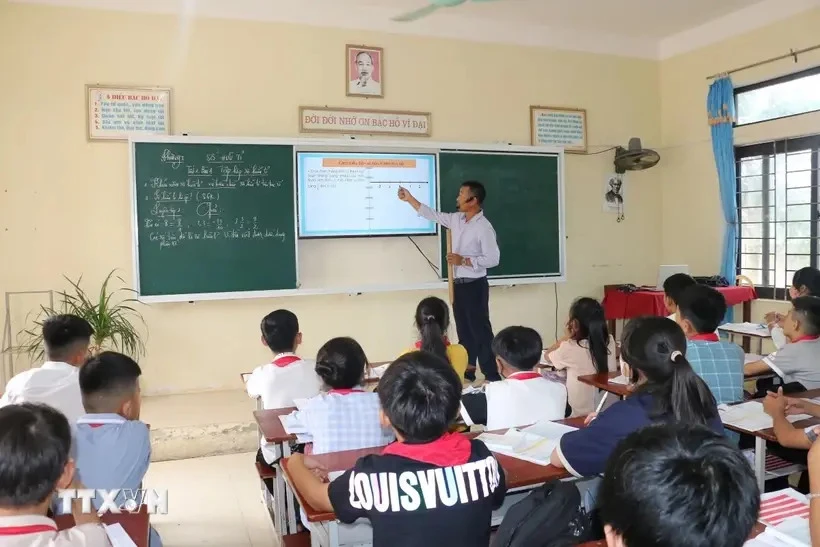
Hanoi (VNA) – The Politburo has concluded that teachers' salaries must be placed on the top of the salary scale system for the administrative and non-productive sector, with additional allowances tailored to the work's nature and regions.
Signed by permanent member of the Party Central Committee’s Secretariat Luong Cuong, the conclusion is for the continued implementation of the 11th Party Central Committee’s Resolution No.29- NQ/TW dated November 4, 2013 on “Fundamental and Comprehensive Innovation in Education and Training, Serving Industrialisation and Modernisation in a Socialist-Oriented Market Economy During International Integration”.
It stressed the urgent need to continue advancing fundamental and comprehensive innovation in education and training to meet the nation's development needs in the new era. The move aims to respond to the fourth industrial revolution and the rapid advancement of digital technology and artificial intelligence, with the hope of elevating Vietnam's education and training to an advanced level in Asia by 2030 and to a global standard by 2045.
The Politburo called on Party committees, administrations, the Vietnam Fatherland Front, and socio-political organisations to continue thoroughly grasping and rigorously following the viewpoints, goals, tasks, and solutions outlined in Resolution 29-NQ/TW, the resolution of the 13th National Party Congress and other Party resolutions on education and training.
In particular, the conclusion underscores the necessity to review, amend, and perfect relevant mechanisms, policies, and laws, including the expedient building of a law on teachers, a law on lifelong learning, an education development strategy, and regulations on education management and school governance reform.
Investment in education, described as "the top national policy," will be put at the top in socio-economic development plans. The focus will be on enhancing comprehensive education quality at all levels, modernising vocational and higher education, and boosting scientific research capacity within educational institutions. Emerging fields such as artificial intelligence, data science, and semiconductors will be key areas of focus, serving the knowledge-based, digital, green, and circular economy.
To achieve these goals, the state budget allocated for education-training should account for at least 20% of the total state budget expenditure, as stipulated in Resolution No. 29-NQ/TW. Ethnic minority, mountainous, border, and island areas will also be given priority./.
